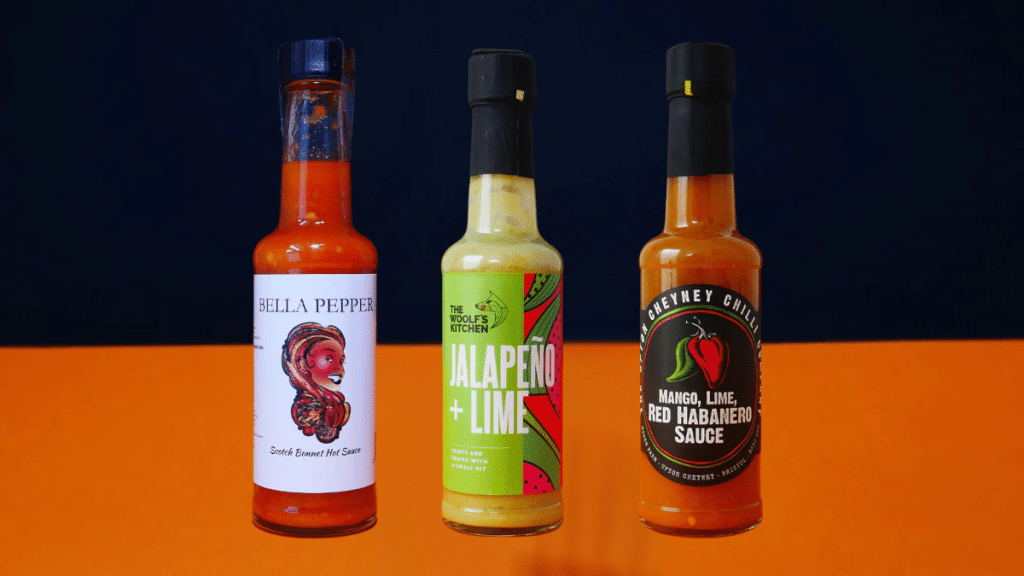Hot sauce fans are a discerning lot. Some are happy with shakers from the grocery aisle, while others chase small batch creations that pack character you simply can’t replicate in a factory. And that’s the fascinating divide: mass market convenience versus artisan authenticity. Let’s look at what truly separates the two — from ingredients and technique to values and community — without slipping into hype or hard sell.
The Ingredients Tell You a Story
When you examine most mass produced hot sauces, the ingredient list rarely surprises you. Vinegar, water, salt and a base pepper. It’s a formula — designed for consistency, shelf life and cost effectiveness. Artisan sauces, however, often begin in the soil. They’re made using locally grown peppers, small yield heirloom varieties or hybrid cultivars tailored for specific flavor notes. And that changes everything.
The result isn’t just heat. It’s a layered experience. Sweetness from fruit-based additions, smokiness from fire roasting, or the tart funk that comes from fermentation — all of it reflects the unique choices of the maker and the environment the ingredients came from. Every bottle can feel like a snapshot of place and season.
Why Flavor Complexity Matters
This is where the real difference shows up — and where the keyword fits naturally. You’ll rarely find artisan-made sauces with a kick that rely on just one note. They’re built like a good song, not a single loud chord. You get waves of taste — sharp vinegar balanced by mellow sweetness, or delayed heat following a citrus burst. Many makers use time intensive methods like fermentation or barrel aging, which adds a depth of flavor most mass market sauces never reach.
That complexity isn’t about making things fancy for the sake of it. It’s about creating something that invites you back in, that makes you pause mid-bite to figure out what exactly you’re tasting. That’s not a common experience with your standard red bottle.
Smaller Batches, Smarter Processes
Mass production means automation, dilution and standardisation. Hot sauce on that scale must survive months on a shelf and perform identically every time. Artisan makers operate with a different mindset entirely. Small batch production gives them freedom — to experiment, to tinker, to make decisions based on taste rather than metrics.
There’s also something else that comes with that scale: intention. The person behind the sauce often touches every part of the process, from sourcing ingredients to hand-labelling bottles. You’re getting something closer to a crafted object than a product line.
Heat Isn’t the Whole Point
A common assumption with hot sauce — especially from the mass market — is that more heat means better quality. But artisan sauces tend to treat heat as a supporting character. Yes, they can be fiery. But the goal is balance. A truly good sauce should enhance the food, not obliterate it. Artisan makers understand this instinctively. They use heat to build complexity, not to show off.
In fact, some of the best artisan sauces aren’t even that hot — they’re interesting. They linger, they evolve, they make a simple dish taste like something new.
A Connection to the Maker (and Their Mission)
With big brands, you rarely know who’s behind the product. Artisan sauce makers often build direct relationships with their customers. Their story is part of the experience. Maybe they started out selling bottles at a weekend market, or maybe they grow their own chillies in a backyard plot. You see their process on Instagram, read their notes on label backs. It adds a level of transparency and humanity that the faceless brands can’t match.
And many small makers are driven by values beyond profit. Sustainability, fair trade sourcing, charitable donations — these aren’t afterthoughts, they’re baked into how the sauce is made.
Final Thoughts: Why the Sauce Matters
Choosing artisan hot sauce over a supermarket bottle isn’t just about taste — it’s about intent. It’s choosing something made slowly in a world that moves too fast. It’s choosing variety over uniformity, flavour over fire, and story over strategy. And sometimes, it’s just because it tastes really, really good.
No one’s saying you need to throw out your go-to grocery brand. But next time you reach for it, ask yourself what you might be missing. Because the best artisan sauces don’t just kick — they speak.
